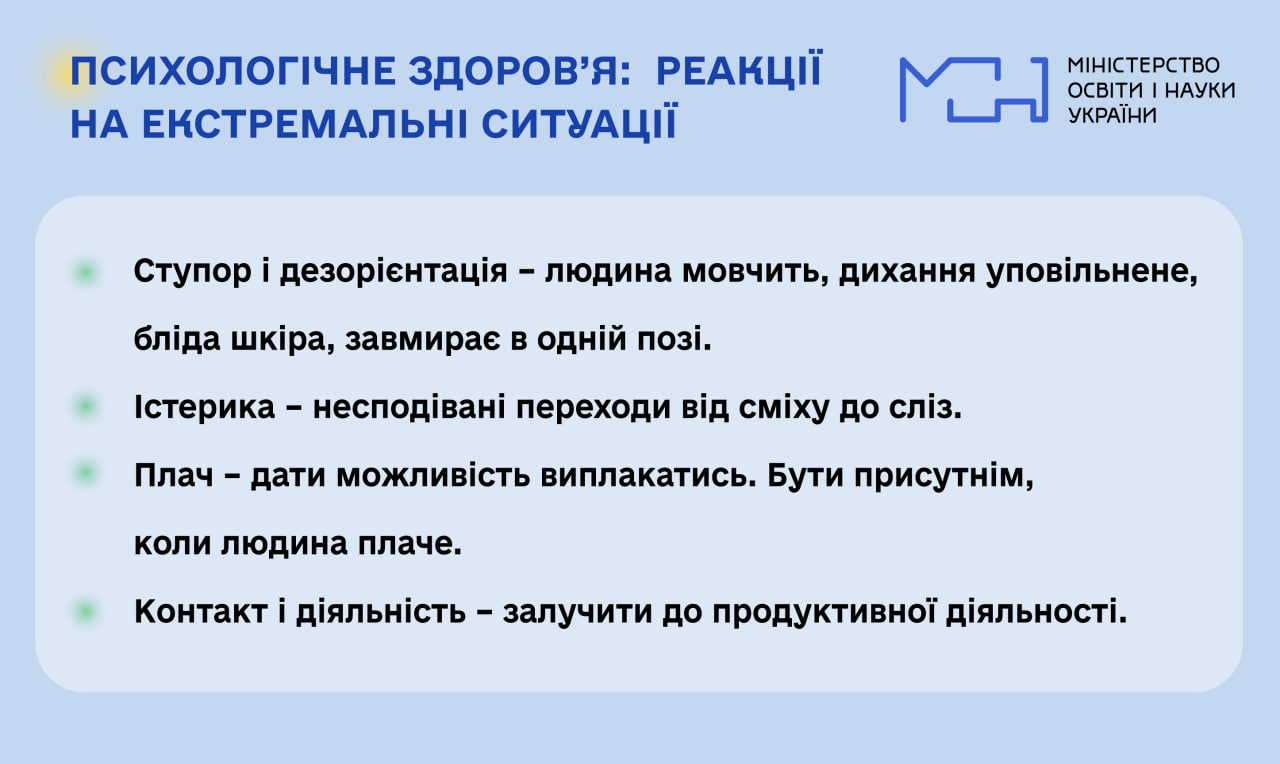As part of the National Program of Mental Health and Psychosocial Support at the initiative of the First Lady of Ukraine Olena Zelenska, the team of the Ministry of Education and Science of Ukraine together with the psychologists of the Telegram channel “Take care of yourself” continues to provide practical advice and recommendations.
Today we will talk about the types of people’s reactions to extreme situations. Ukrainians have been living under martial law for 11 months. How to psychologically support a person who is under stress?
Stupor and disorientation – requires urgent intervention. It may turn into uncontrolled chaotic movements.
- Signs: the person is silent, breathing is slowed down, pale skin, freezes in one position.
- What you can do:
ask “What’s your name? Stand up. Give me a hand. Now we are going to (name the place where you are going). Sit down. Drink.” You can give hot sweet liquid or chocolate. Be sure to talk about step-by-step actions – take, sit;
organize activity: offer to wrap themselves in a blanket or a warm jacket;
if a person cries, it is a normal reaction to acute stress.
Hysterics
- Signs: sudden transitions from laughter to tears.
- What you can do:
give hot tea, it will calm the person down.
Weep
- What you can do:
give them hot tea, wrap in a warm blanket or jacket, let the person cry. Be present during crying;
- monitor the condition from time to time.
- don’t say: “Don’t cry, calm down, stop.”
- you can say: “I am near. I’m with you. You can count on me.”
Contact and activity
- If the person makes contact, offer grounding and self-regulation techniques.
- Engage in productive activities. Ask them to help you bring something, heat water for tea, etc. Give short, clear instructions.
- Regardless of the extreme situation, the above-mentioned reactions of a person should not be perceived as a mentally unhealthy state.
Media Center of
National University “Yuri Kondratyuk Poltava Polytechnic”



